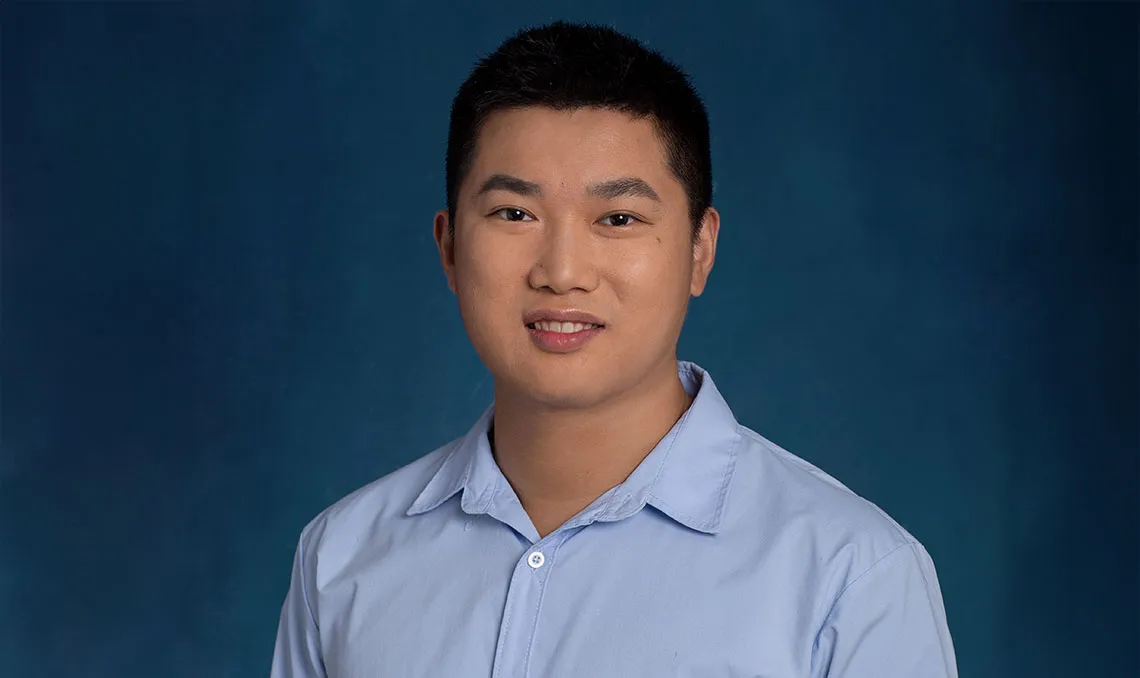Fostering a Deep Understanding: Liangming Pan, Assistant Professor
INFOSCI FACULTY PROFILE

Dr. Liangming Pan, Assistant Professor.
One of the aspects I enjoy most about teaching is fostering a deep understanding of complex concepts through interactive discussions and real-world applications. I strive to make my classroom a place where students can engage critically with the material and leave with practical knowledge they can apply in their careers.
Dr. Liangming Pan, who holds a PhD in Computer Science from the National University of Singapore, joined the College of Information Science in fall 2024. His primary research focuses on natural language processing and machine learning—artificial intelligence—and specifically how to build large language models that are logical, truthful and safe. Learn more about our newest assistant professor in this profile:
What brought you to the College of Information Science and University of Arizona?
Prior to joining the college, I was a postdoctoral scholar at University of California, Santa Barbara. I was drawn to the University of Arizona and the College of Information Science because of its vibrant research environment and its commitment to interdisciplinary collaboration. The university’s focus on innovation in data science, human-centered computing and artificial intelligence aligns perfectly with my academic interests and career goals.
What is your current research, and what most excites you about this work?
My current research focuses on natural language processing, particularly on the challenge of building trustworthy large language models that are logical, truthful and safe. What excites me most about this work is its potential to shape the future of AI in a responsible way. By developing models that prioritize accuracy and ethical use, we can ensure that these technologies serve as reliable tools for society, minimizing risks while maximizing their positive impact. This research has far-reaching implications, from improving AI-assisted decision-making to ensuring that conversational agents are beneficial and aligned with human values.
Tell us about your community or other service work.
I’m actively involved in the academic community, serving in panelist and chair roles for several major conferences. I also review for top-tier journals, contributing to the advancement of research in natural language processing. These roles allow me to meet more people, keep track of emerging trends and help maintain high standards in the field.
What courses will you be teaching for the college, and what do you most enjoy about teaching?
I will be teaching INFO 523: Data Mining and Knowledge Discovery this semester. One of the aspects I enjoy most about teaching is fostering a deep understanding of complex concepts through interactive discussions and real-world applications. I strive to make my classroom a place where students can engage critically with the material and leave with practical knowledge they can apply in their careers.
I was drawn to the U of A because of its vibrant research environment and its commitment to interdisciplinary collaboration. The university’s focus on innovation in data science, human-centered computing and artificial intelligence aligns perfectly with my academic interests and career goals.
How do you bring your research into your teaching?
For Data Mining and Knowledge Discovery, I am integrating my research in natural language processing and trustworthy AI by incorporating real-world examples and case studies. This allows students to see the practical applications of data mining techniques. I also draw on my consulting and service work to introduce students to current challenges in the field, helping them develop the critical thinking skills needed to address complex data problems.
How else do you engage with students to foster their academic and professional growth?
I believe in fostering a supportive and collaborative environment both inside and outside the classroom. I encourage open dialogue, provide mentorship and work with students on research projects that align with their professional interests. Additionally, I engage students through internships, industry connections and workshops to prepare them for the next steps in their careers.
Beyond research, teaching and academic service, what are your passions?
Outside of my academic work, I’m passionate about staying active through badminton, basketball and hiking. These activities help me stay balanced and energized. I also enjoy playing video games, which I find to be a fun and engaging way to unwind and occasionally explore creative problem-solving in a different context.
What advice do you have for prospective or current InfoSci students?
My advice to students is to remain curious and never be afraid to ask questions. Computer science and information science is a dynamic and rapidly evolving field, and the more you engage with new ideas, the better prepared you’ll be to innovate and lead. Be open to interdisciplinary learning, seek out mentorship and take every opportunity to apply your knowledge outside the classroom.
Learn more about Liangming Pan on his faculty page, or explore ways you can support the dynamic, student-invested faculty of the College of Information Science.

